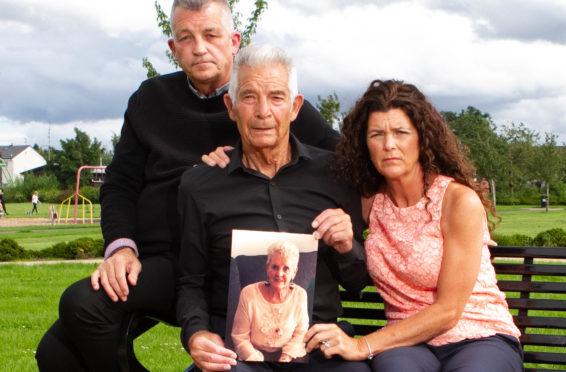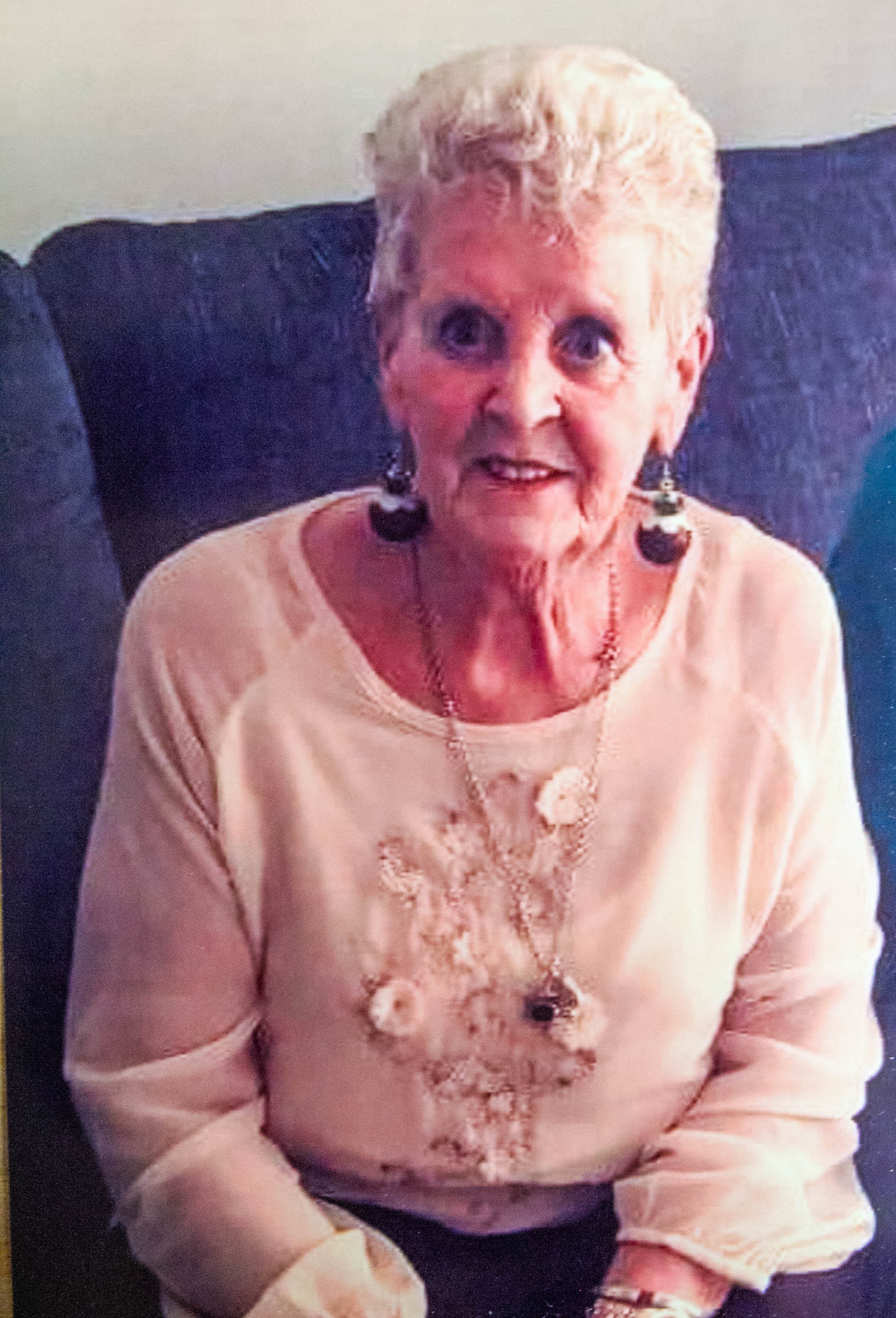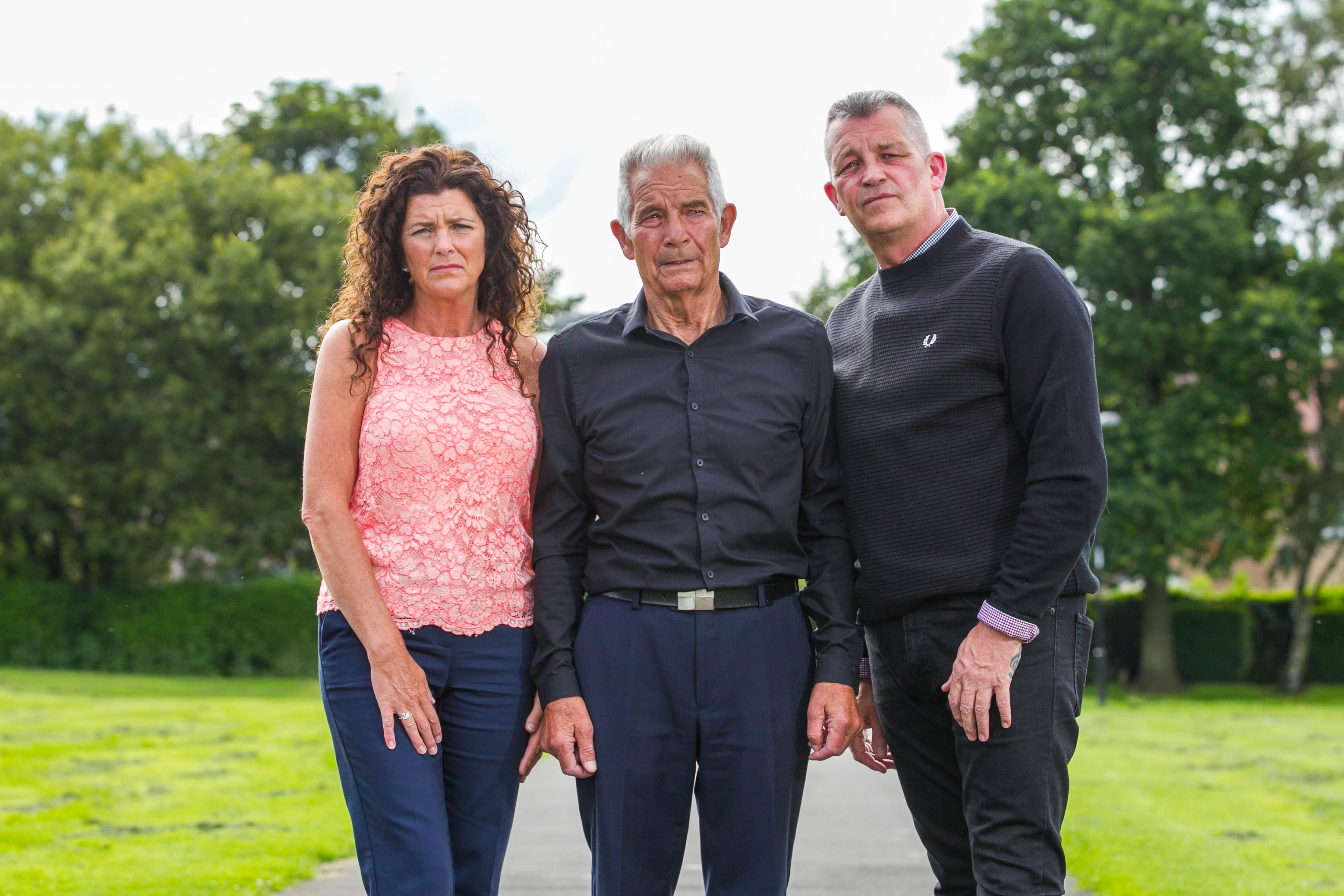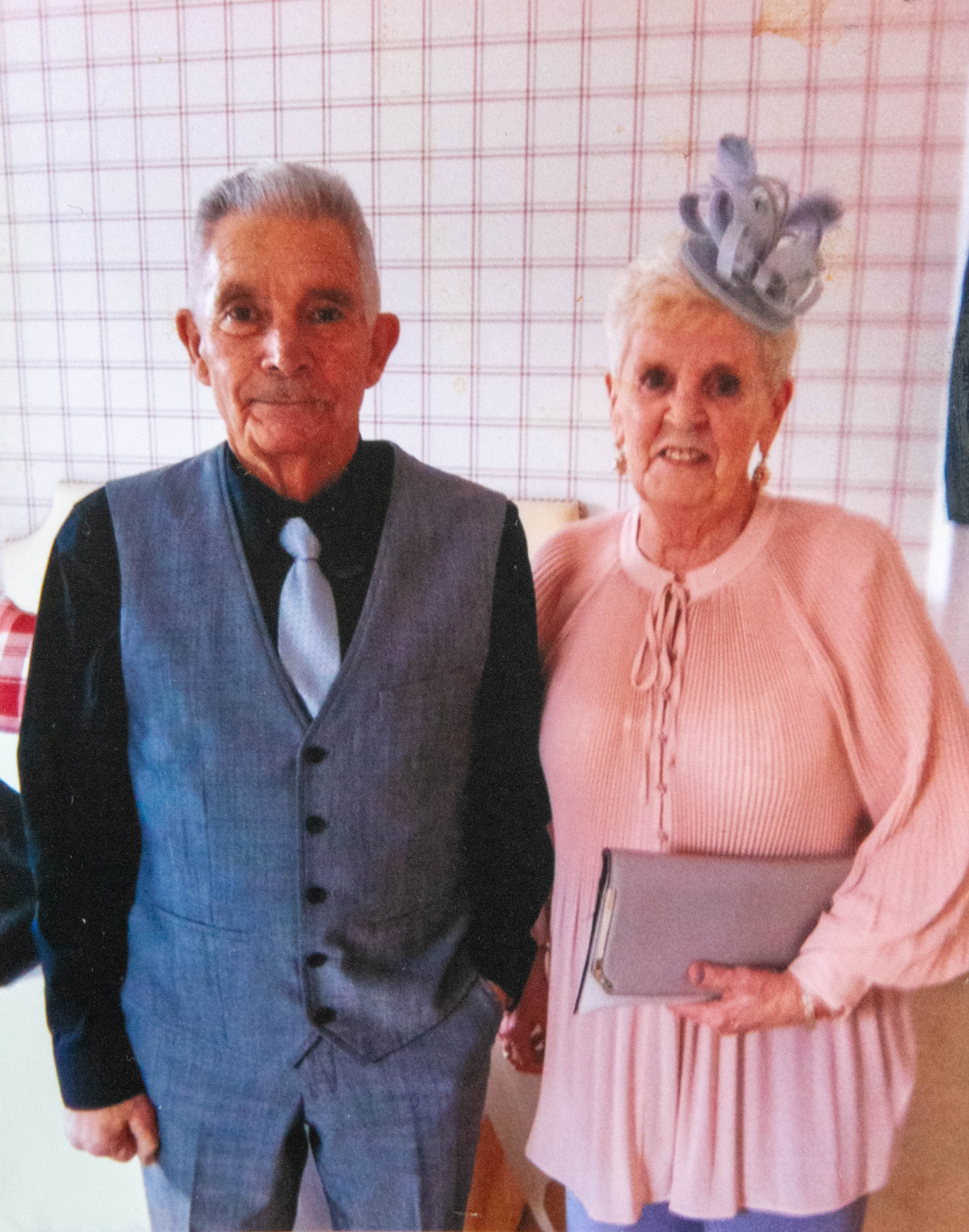
The family of the first woman in the UK to have mesh listed as one of the causes of her death has demanded an inquiry into why a post mortem was not ordered.
They say the failure to fully investigate the death of 75-year-old Eileen Baxter last year is putting other women at risk as the prolapse mesh procedure is still being used in hospitals, despite use of other implants being suspended.
Mark Baxter and his sister, Audrey Thomson, want a Fatal Accident Inquiry (FAI) and the immediate halt to the use of the implant, which is inserted abdominally.
Painter and decorator Mark, 53, said: “Mum would have wanted lessons to have been learned from her death.
“But nothing has been done because no post mortem was carried out.
“It’s hard to understand why such a vital opportunity has been lost. It feels like no one wants to ask the questions as they don’t want to know the answers.
“This is why we’re pressing for an FAI, so the truth about the safety of this mesh procedure is properly examined.”
They say they Eileen, a great grandmother from Loanhead, Midlothian, spent the last years of her life in agony after having an abdominal mesh procedure, sacrocolpopexy, in 2013.
The pensioner was rushed into hospital last August where she suffered a perforated bowel, lapsed into a coma and died.
It was later discovered mesh had perforated her bladder and adhered to her bowel.
Her death certificate lists multiple organ failure, rectal perforation, pelvic inflammation with possible sepsis, and sacrocolpopexy mesh repair.
But a year after Eileen’s death, NHS Lothian cannot even tell her family which company made the mesh, never mind if the implant was defective .
The Sunday Post View: Say nothing and do nothing… Civic Scotland steeped in sullen silence over mesh and blue water schools – click here to read more
Eileen’s husband Chic, 80, said: “The medical people are turning cartwheels to play down the effect the mesh had on my wife.
“But I’ll go to my grave knowing that was what killed her. I had to watch the torture and pain she went through on a daily basis from the moment they put that plastic inside her, and Eileen was convinced it was destroying her health.”
Her daughter Audrey, 51, said: “The day surgeons put mesh inside my mum was the day they delivered her death sentence.
“For years she was in agony as the mesh slowly poisoned her body and cut into her organs.
“Why they did not carry out a post mortem and save other families from having to live through a similar ordeal is nothing short of scandalous.”
Audrey says she is having counselling to get over the horror of her mum’s death, and the feelings of guilt she still suffers as she believed doctors who kept assuring Eileen that mesh was not the cause of her pain.
She said: “It’s hard to live with myself some days as I listened to all the specialists telling mum mesh wasn’t the problem, and I’d urge her to try to get up.
“Mum never believed what they told her for a second. She was convinced mesh was to blame – and she was right.
“We have nothing at all to gain from continuing to fight except the knowledge that mum would have wanted us to prevent this happening to any other patient.
“Our fight won’t stop until we get an FAI.”
Eileen’s family say the moment mesh was entered into her death certificate, alarm bells should have alerted the Crown Office that a post mortem was in the public interest.
Lawyer Amy Haughton, of Thompsons Solicitors, said: “The Baxter family have been through absolute hell.
“Only a full and open inquiry will give them the answers they deserve and show once again the dangers posed by surgical mesh.
“The Scottish Government have made clear that mesh procedures must be halted in all but extreme circumstances.
“That position must be rigorously enforced by the health secretary to stop tragedies like this from happening again.”
Although other mesh implants for treating bladder and prolapse are currently suspended across the UK, medical watchdog NICE says, despite what it describes as “serious but well-recognised safety concerns”, the use of sacrocolpopexy procedures continues.
NICE says surgeons must ensure patients are informed of a risk of prolapse recurring and of mesh erosion.
Only experienced specialists can perform the procedure and all details must be placed on a registry database.
Healthcare Improvement Scotland carry out a random inspection of the certificates for around 6,000 of the 55,000 deaths which occur in Scotland each year outwith sudden, suspicious and stillbirths.
But a spokesman for the agency said: “The Death Certification Review Service has no role in relation to post mortems of people who die in Scotland.”
The Crown Office said: “The Procurator Fiscal may instruct a post mortem examination to assist in establishing the cause of a death.
“A post mortem may not add to the understanding of the circumstances of a death and the Procurator Fiscal will only instruct this procedure where it is necessary.”
NHS Lothian say around 12 abdominal colposacroplexy procedures are carried out each year by the authority.
Dr Tracey Gillies, medical director, NHS Lothian, said :“If a family has concerns or questions about the care of a loved one, we will review the circumstances and discuss in detail with them to help provide understanding.
“We are unable to publicly discuss any patient care without consent.”
A Scottish Government spokesperson said: “The health secretary met Mrs Baxter’s family last year to assure them NHS Lothian would conduct a full review of Mrs Baxter’s death.
“We understand that NHS Lothian have now completed their review and have shared the findings with Mrs Baxter’s family.
“We would expect the board to act immediately on any lessons learned and to share these with other boards as appropriate. We are writing to NHS Lothian to ensure this is carried out.”
Expert: Missed opportunity to learn lessons
A consultant examined an internal NHS Lothian report on behalf of the family before voicing deep concern that a full post mortem had not been carried out and said an opportunity to learn from the tragedy had been lost.
The respected specialist said: “If ever a death warranted a post mortem, this certainly did as the first to list mesh as a cause.
“As a result, an opportunity to learn vital lessons which could prevent future deaths, was lost.
“The hospital appears to still be in denial about the role mesh played in this death. They need to admit it, and learn from it. If we cannot learn and reduce the risk to others, this mesh procedure should be stopped.”
The expert said the routine pathology work carried out fell far short of what would have been expected in a full post mortem.
The consultant said: “The pathology report states there was evidence that diverticulitis disease was worse where mesh was present. But unless this was compared to the rest of the colon, we learn nothing.”
Neil Findlay, Scottish Labour MSP for Lothian, is backing the family’s call for an FAI and immediate suspension of the mesh implant used on Eileen.
He said: “I find it incomprehensible why there was no full post mortem in this case despite Eileen’s death being the first in the UK to have mesh named on her death certificate as a contributory factor.
“Following NHS Lothian’s review of this case, Eileen’s family have been left with even more questions than answers and that is unacceptable.”
The consultant who reviewed the report noted there had been “significant delays” of up to eight months in the management of the prolapse mesh which had eroded into Eileen’s bladder and also affected the discovery of mesh attached to her bowel.
Inflammation and infection coupled with mesh erosion and bowel leakage led to overwhelming bacterial peritonitis and septicaemia. Eileen was rushed to hospital on August 19 last year and died eight days later.

Enjoy the convenience of having The Sunday Post delivered as a digital ePaper straight to your smartphone, tablet or computer.
Subscribe for only £5.49 a month and enjoy all the benefits of the printed paper as a digital replica.
Subscribe
 © Chris Austin / DCT Media
© Chris Austin / DCT Media
